-
Preventing Noise-Induced Hearing Loss in the Workplace
Occupational hearing loss is a significant risk for employees and a common cause of workers’ comp claims. Fortunately, there are many things you can do to protect your hearing at work. If you do suffer hearing loss, contact a workers’ compensation lawyer in Baltimore to determine what steps you should take next.
Start by recognizing the risks at your job. If you work around heavy machinery, at an airport, in landscaping, or as a first-responder, your hearing could be in danger. Once you understand the risks, determine what kind of device, from earplugs to protective headphones, will provide the best protection for your ears at work. Your employer also has a responsibility to provide training about hearing protection and to set workplace rules that require employees to use protective gear as appropriate for the environment if hearing loss is a risk.
If you have suffered hearing loss on the job, talk to a workers’ compensation attorney. He or she can help you determine what steps you should take to get the compensation to which you are entitled.

-
Does Your Car Have an Emergency Kit?
If you experience a car accident near your Baltimore home , an emergency kit could be an essential part of mitigating injuries for yourself and your passengers. The right time to think about an emergency kit is now, before a car accident occurs. Here are some tips for putting together a kit that has the things you need in the event of an accident.
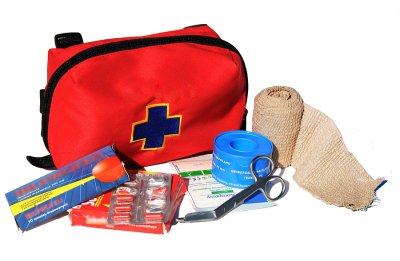
First-Aid Kit
A first-aid kit is the foundation of any good emergency kit. Make sure yours is stocked with Band-Aids, gauze, antiseptic creams and wipes, and aspirin or another pain medication. If your family has special medical needs, these supplies should be in the kit as well. For instance, if someone in your family has diabetes, keep glucose tablets or gel or another non-perishable source of sugar on hand. You will still need to get emergency care after a car accident injury, but having basic first-aid supplies can help you cope with an injury until the first responders arrive.
Basic Repair Tools
Whether after a car accident or during a roadside emergency, having basic repair tools can be handy. Keep things like jumper cables, tire foam, and a multipurpose utility tool in your kit. You should also have things that can assist with repairs and general safety, such as gloves, rags, duct tape, and a flashlight with extra batteries on hand. A tire gauge is also a useful tool.
Charged Cellphone
Having a charged cellphone is essential every time you get behind the wheel. Charge your cellphone every time you get in the car, and keep a spare charger in your emergency kit. Some people find it helpful to have a backup phone with a portable charger in their kit as well. Because you never know what is going to happen on the road, consider programming the number of a car accident attorney into your phone so that you can always reach a lawyer when you have been injured and need to act quickly to preserve your rights.
-
Understanding Shock After a Serious Car Accident
After a car accident, shock is one of the serious conditions that can occur. This life-threatening condition requires immediate treatment, and if you hire an accident attorney in Baltimore to represent you in an injury case, he or she will ask if you were treated for shock as part of preparing for your lawsuit.
Shock occurs when the oxygen that is contained in the blood is not adequate to support the cells. It is associated with low blood pressure and can eventually lead to organ failure if it is not treated quickly. It is possible to have long-term or permanent injuries associated with shock if treatment is delayed. If you experience shock after a car accident, the emergency medical team may use oxygen therapy, IV fluids, blood transfusions, and medications to constrict your blood vessels to attempt to manage the condition.
-
Maryland’s New DUI Law
Maryland lawmakers passed the Drunk Driving Reduction Act of 2016 just a few short months ago. It increases the penalties for individuals convicted of driving under the influence (DUI). This means that if you are pulled over for drunk driving, it’s even more important to contact a DUI attorney in Baltimore. The law, which went into effect last October, mandates that every person convicted of DUI is required to install an ignition interlock device in his or her vehicle. This device prevents the vehicle from starting if it detects alcohol in the individual’s breath. It also periodically requires drivers to retest their breath at random intervals during each trip.
The Drunk Driving Reduction Act of 2016 was nicknamed “Noah’s Law” in memory of Noah Leotta. Noah was a Montgomery County police officer who was killed in December 2015 during a routine traffic stop. It was a repeat DUI offender who struck and killed Noah. Drivers pulled over on suspicion of drunk driving should be aware that Noah’s Law also applies to them if they refuse a chemical test during a traffic stop.
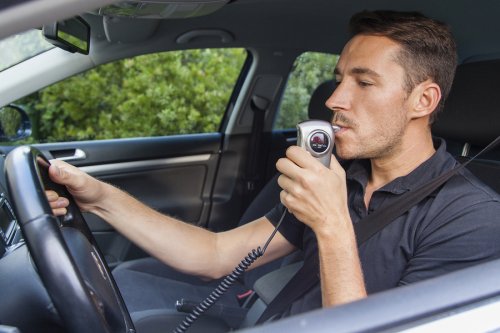
-
Basic Qualifications for Social Security Disability
If you are physically or mentally disabled, you may be able to qualify for Social Security benefits . Consider speaking to an attorney in Baltimore about your eligibility. Your attorney will need to know about your medical conditions and employment history. You may still qualify for benefits if you are currently working as long as your monthly income does not exceed a certain threshold.
As you’ll learn by watching this video, other criteria for Social Security benefits include having a disabling condition that is expected to either end in death or last for at least 12 consecutive months. You must be unable to perform work that you previously did and be unable to adjust to other types of work.
-
A Quick Look at Vocational Rehab
When you consult a workers’ compensation lawyer in Baltimore, you may hear the term “vocational rehabilitation.” Vocational rehab may be available as part of your workers’ comp benefits. Its purpose is to provide you with the services you need to re-enter the workforce. If you aren’t sure whether you qualify for vocational rehab or if you have a disagreement about the services being provided, your workers’ compensation attorney can assist you.

Candidates
Vocational rehab is available to injured employees who are unable to return to their previous work because of a qualifying workplace injury. Even when a person can no longer perform his or her previous work, he or she may be re-trained to fulfill another position. If you cannot return to work in any capacity, you may be a candidate for Social Security disability benefits instead of vocational rehab services. Before receiving vocational rehab services, the workers’ comp insurance carrier must agree that you are qualified to receive them. If your workers’ comp refuses vocational rehab services, talk to your lawyer. He or she may request a hearing to appeal this decision.
Services
The services you can receive are dependent upon your specific needs. Generally, vocational rehabilitation can include aptitude or skills testing, vocational counseling, job training, and job placement services. You might also receive on-the-job training when you begin your new job.
Practitioners
In Maryland, injured workers can turn to either a public or private rehabilitation counselor. Public counselors work through the Maryland Division of Rehabilitation Services (DORS). When you’re assigned a rehabilitation counselor, you must advise him or her of your workers’ comp claim.
Steps
Your vocational rehabilitation will begin with an in-depth interview with your assigned counselor. You can expect to answer plenty of questions about your background, including your education, certifications, professional licenses, and other credentials. You’ll also answer questions about your employment history, and any of your personal interests or hobbies that may influence the course of your future career. The counselor will consider your physical limitations or other aspects of your disability. Based on this information, your counselor will develop a personalized rehabilitation plan that includes actionable, specific goals. If you do not agree that the plan and its goals are appropriate for you, the plan will be submitted to a commissioner.
-
Coping with Limb Loss
Traumatic limb loss affects countless individuals. It can be difficult to move forward after a car accident or other incident that costs you a limb. During such a difficult time, you need a strong network of support. Ideally, your support network should include an accident lawyer in Baltimore who has prior experience handling cases that involve catastrophic injuries. Your accident attorney can help you seek the compensation you’ll need for your medical care and future expenses.
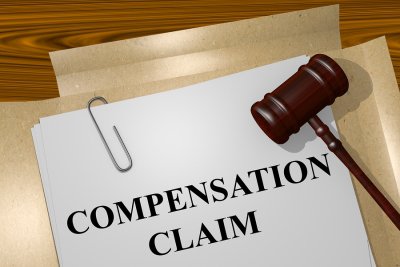
Making Financial Arrangements
When limb loss occurs as a result of a car accident or other sudden incident, there is no time to prepare for it. And immediately after waking up in the hospital, you’ll have many other issues on your mind than paying the medical bills. Ask a relative to find an experienced accident attorney who can get started reviewing your case. Later on, you can take a more active role in the accident lawsuit. Compensation from a settlement or jury verdict can allow you to meet your care needs despite your reduced capacity to work.
Seeking Mental Health Counseling
It is quite a shock to wake up in the hospital and discover that a limb is missing. For this reason, it’s customary for mental health professionals to meet with amputees as quickly as possible. Even if you never considered speaking with a psychologist before the accident, you are strongly encouraged to take advantage of mental health resources while you adjust to your new realities.
Coping with Physical Limitations
You may be in the hospital for quite a while after the amputation. Before you are discharged, you can expect to meet with a physical therapist and perhaps an occupational therapist. Your therapists will develop a rehabilitation program for you, which will include teaching you how to overcome your new physical limitations . Your occupational therapist will help you relearn important self-care skills such as dressing yourself and climbing stairs.
Defining a New Self-Identity
As you progress with your recovery, you may need to redefine your purpose in life. You may no longer be able to work and you may need others to provide care for you, especially if you’ve lost multiple limbs. But this certainly doesn’t mean that your life no longer has a purpose. Your life has taken an unexpected turn, but you can find new meaning and purpose that allows you to move forward.
-
Recovering from Whiplash
If you’ve recently been involved in a car accident in the Baltimore area, it’s important to seek prompt medical care for your car accident injuries. Some of these injuries, such as whiplash, may not be immediately apparent after the crash. Keep a written list of symptoms as they develop to share with your injury lawyer. Be sure to follow all of your doctor’s instructions for recovering from your car accident injuries.
You can get some helpful tips on recovering from whiplash when you watch this video. It explains the benefits of keeping a positive attitude and staying physically active while healing. Of course, you’ll need to avoid strenuous activities and activities that aggravate the neck. Instead, take a stroll around the block or enjoy some gentle swimming to support your body’s health while you heal. Some whiplash patients may be prescribed medications to minimize the swelling and pain.
-
Auto Accidents 101: What Is a Claim?
After being involved in a car accident in Baltimore , your health should be your priority. You can hire an injury lawyer to handle your case, which allows you to focus on your recovery. After reviewing your case, your injury lawyer will file a claim with the insurance carrier. This is not the same as a car accident lawsuit, although it may sometimes become necessary to file a lawsuit later. A claim is filed with the other driver’s auto insurance company. This begins the process of obtaining a settlement, which is money that compensates you for your medical bills, property damage, and other accident-related expenses.
Your injury lawyer will calculate your total monetary losses and may include this figure in the claim. The insurance carrier may then respond with a counteroffer. Your injury lawyer will continue to negotiate with the company until both parties agree to a settlement. If a fair settlement is not forthcoming or you do not agree with the amount the insurance company offers you, then you might consider filing a lawsuit.
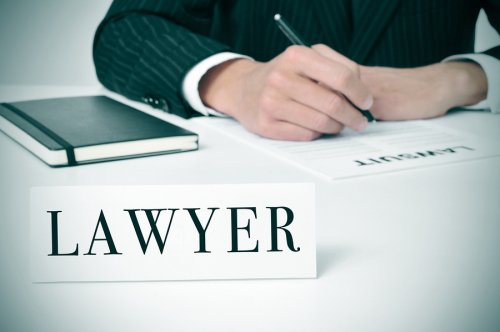
-
A Look at Independent Medical Exams in Workers’ Comp Cases
Workers’ compensation cases are not always cut-and-dry. In fact, your claim might even be initially denied. To improve your chances of successfully obtaining the workers’ comp you’re entitled to receive, you can speak with a workers’ compensation lawyer in Baltimore. Your workers’ compensation attorney will guide you through each stage of the process, including the independent medical exam.
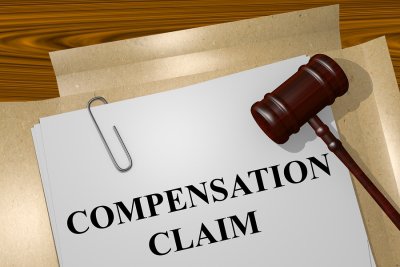
Purpose
The word “independent” can be somewhat misleading, as an independent medical exam is not necessarily conducted by a neutral medical provider. Often, the exam is arranged by a worker’s employer or the workers’ comp insurance carrier. You may be required to have this exam if there are any lingering questions or disputes about your injuries. In some cases, attorneys request that their clients undergo a second independent medical exam to counter the results of the first one. During your exam, the doctor will seek to determine the following:
- Was your condition diagnosed correctly?
- Was your condition caused by the workplace?
- To which extent are you impaired?
- Do you need work restrictions?
- Can you return to work and if so, when?
- Do you require further testing or treatment?
Preparation
Before the exam, take a few minutes to review your medical history. It’s a good idea to bring detailed notes about the diagnostic tests and treatments you’ve had, the medications you took and are currently taking, and the symptoms and functional limitations you’re experiencing. This last type of information is particularly important; write down each of your symptoms and limitations, no matter how insignificant they may seem. Bring any medical devices you’re using to the appointment and give yourself plenty of time to get there.
Examination
When answering the provider’s questions, be polite, respectful, and honest. Avoid exaggerating your pain and other symptoms, but also avoid downplaying them. You can expect to discuss the workplace accident in detail. Workers’ compensation is a no-fault system, which means it doesn’t matter if you made a mistake that contributed to the accident. The most important information the medical provider will glean from this conversation is whether your injury was indeed work-related or not.
RECENT POSTS
categories
- Uncategorized
- Worker's Compensation
- Attorney Fees
- Auto Accident Injury Whiplash
- Attorney Review
- Personal Injury
- Social Security Disability
- DUI
- Workplace Injuries
- Auto Accident
- Workers Compensation Claims
- Permanent Disability
- Infographic
- Drunk Driving
- Wrongful Death
- Works in Maryland
- Uninsured Motorists
- Motorcycle Crashes
